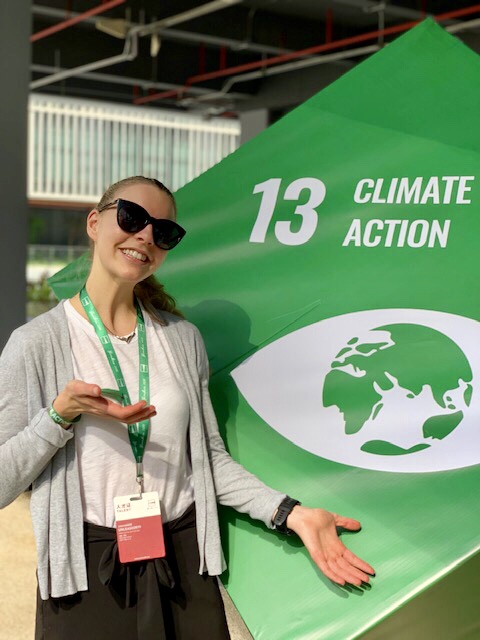
Andrea poses in front of the SDG 13: Climate Action cube
These are some of the feelings I am left with after attending UNLEASH Global Innovation Lab for the UN Sustainable Development Goals (SDGs):
Hope, that we can co-create a greener future. Excitement, that young people from all over the world are driving the shift we need to make this happen.
The lab brought together 1000 talents from 162 countries to co-create disruptive solutions to the world’s most pressing problems and advance sustainable development. Of the 17 SDGs, this year’s UNLEASH addressed eight of them, and I felt incredibly honoured to go to Shenzhen, China as one of the youth participants (or “talents”) to work on SDG 13: Climate Action.
Going in, I was told that it would be a once-in-a-lifetime experience, but I was still taken aback. From the enthusiasm and dedication of my peers, to the experiences we shared and connections we built, to listening to two Nobel Peace Prize Laureates, UNLEASH went beyond my expectations.
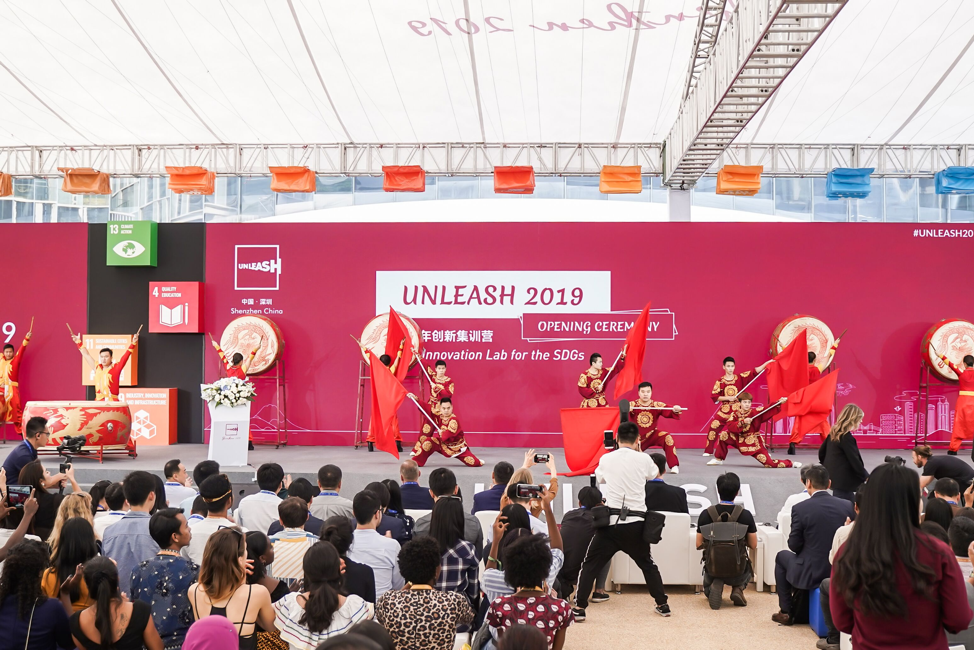
Opening Ceremony at UNLEASH 2019.
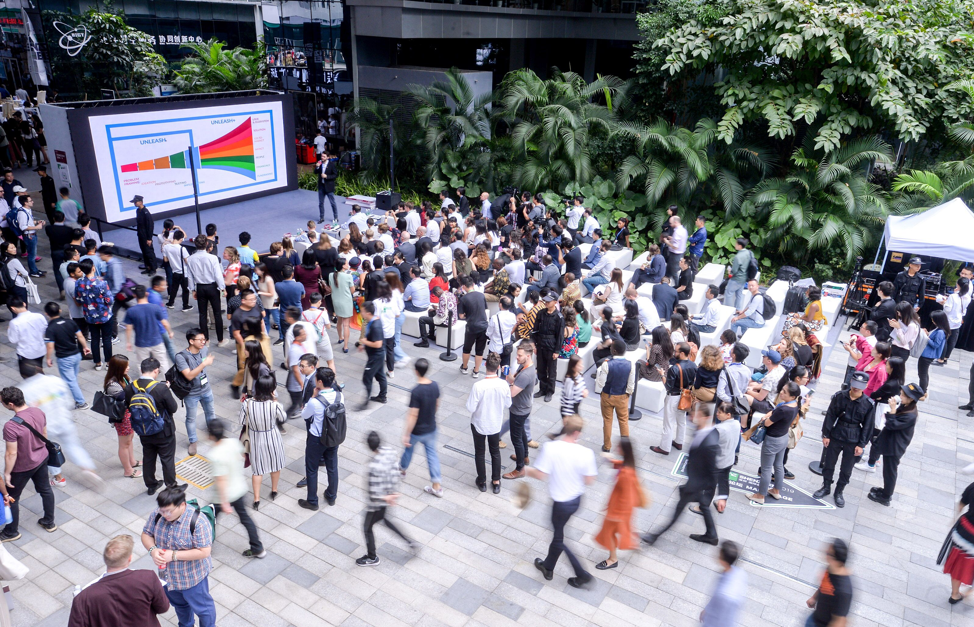
Talents in Action
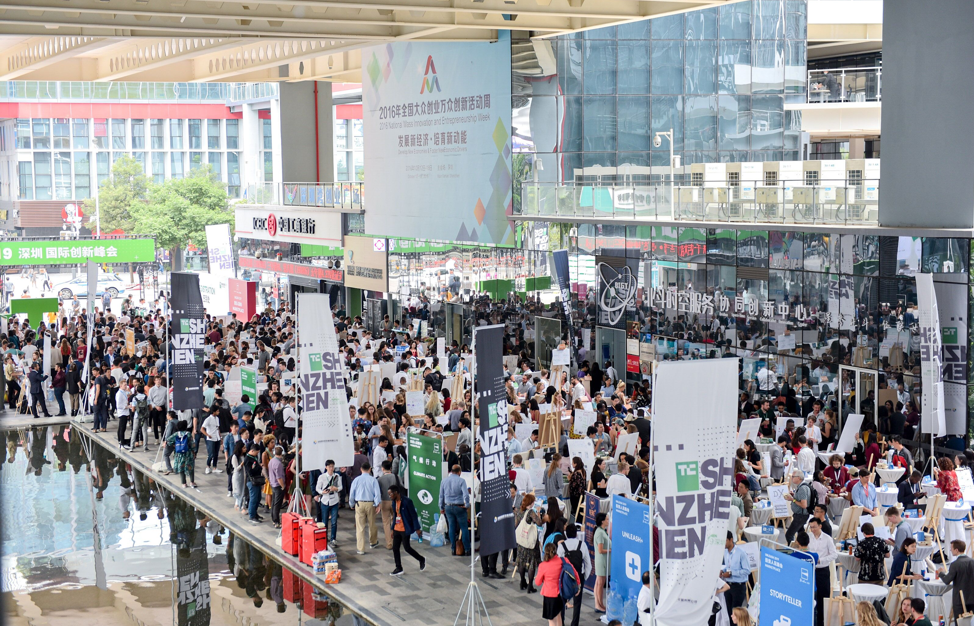
Talents in Action
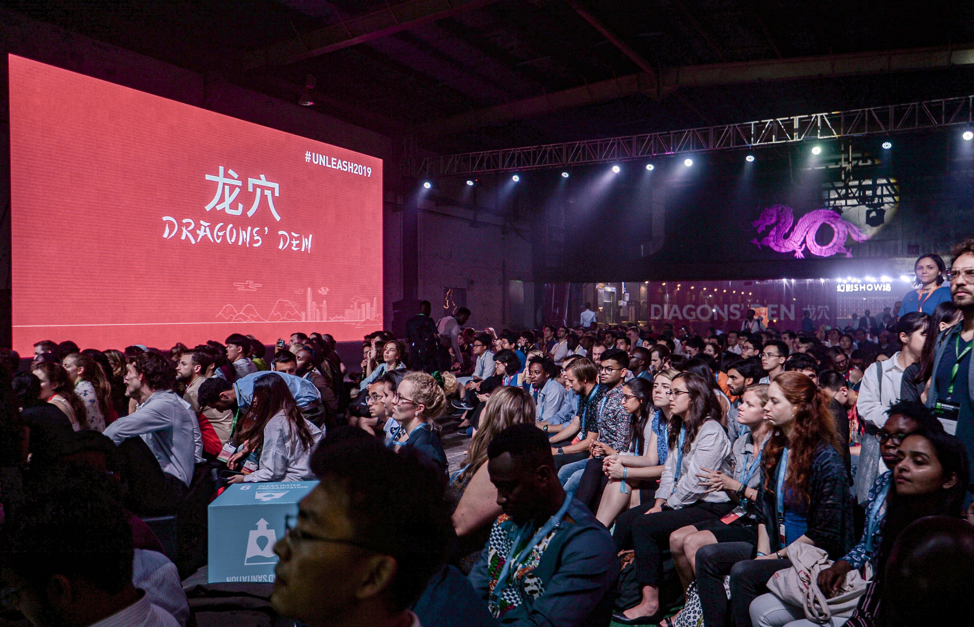
Dragon’s Den, where selected participants present their innovative solutions.
I traveled with Dr. Tara Moreau, Associate Director of UBC Botanical Garden. She previously shared a post about the UNLEASH experience, and you can read more about what UNLEASH is and Tara’s experience here. As a talent participant, I thought I would share with you some of the main take-aways that I am left with after attending.
Although you cannot achieve complete sustainable development from an 8-day innovation lab, a lot of progress can happen. A messaging service to inform Kenyan farmers of ideal crop selection to avoid soil degradation; an app using AI to keep tabs on and match your clothing items to prevent excessive shopping; an incentive system to prevent open defecation in India; and a terrace-structure to prevent coastal soil erosion using algae in Colombia — these are just some examples that show how powerful solutions can be crafted by putting a diverse range of insights together.
UNLEASH highlighted how important it is to always keep in mind what the root causes are, and that the problems we face are not merely problems for the ‘developing world.’ As Nobel Laureate Leymah Gbowee pointed out, there exists a conception that many of the problems we face are predominantly for the African continent, when it is the Global North that has the destructive high-carbon consumerist lifestyles and economic models that lie at the root of the issue. This conception was partly reflected at UNLEASH, where about 75% of the solutions presented in the final pitch round were aimed at issues predominantly faced by the Global South.
To address the root problem we need to look beyond the symptomatic issues and focus on the underlying cause. Current injustices and ecological crises were created by a small subset of humans, and their extractive system rooted in colonialism and neoliberalism. It was refreshing to witness fellow talents voice this concern and the need for a rights-based and equitable system.
This also brings out the point that when it comes to the climate crisis, we are all part of the solution. The climate crisis affects us all (although some more than others), and climate action is deeply personal. There was Magda, who used to live an urban lifestyle in Central Europe, but abandoned it to reconnect with nature, prioritize her health and live from the land. Diwigdi from Panama grew up on an island that will likely be below water in a few years. And I heard over a hundred other personal stories in my track that inspired action. Genuine global cooperation opens up a lot of opportunities and pushes you to step out of your comfort zone, to look at things through a different lens and embrace new ideas and solutions.
“The community grown from it is beyond what I can put into words. I daily receive messages of support, sharing of ideas, opportunity alerts, and throwback photos. I am incredibly grateful to know and be part of this network of people.”
Diversity is a crucial part of our path forward: for making sure people at the front lines of the climate crisis are heard, for ensuring solutions are based on lived experiences, for innovation, and for ensuring a just transition. I had the privilege of working within a team representing four continents and five countries, and the 13-hour long workdays were a blast with Ivana (Italy), Mathias (Benin), Alex (Peru) and Abby (USA). We all met each other for the first time in Shenzhen, but we quickly became a dream team going through the UNLEASH-facilitated innovation process together.
Spaces like UNLEASH are rare, and there is a lot of power in bringing young minds from around the world together. As I am writing this it has been four weeks since UNLEASH kicked off in Shenzhen, and the community grown from it is beyond what I can put into words. I daily receive messages of support, sharing of ideas, opportunity alerts, and throwback photos. I am incredibly grateful to know and be part of this network of people.
We live in a time where climate despair often dominates. After hearing about ever increasing climate disasters, fires, floods, hurricanes, and knowing we are nowhere on track to reach 1.5 degree target, it is easy to lose hope. UNLEASH showed that bringing engaged, young minds together, even for just one week, can produce dramatic, transformative solutions to achieve the change we need for a sustainable world.
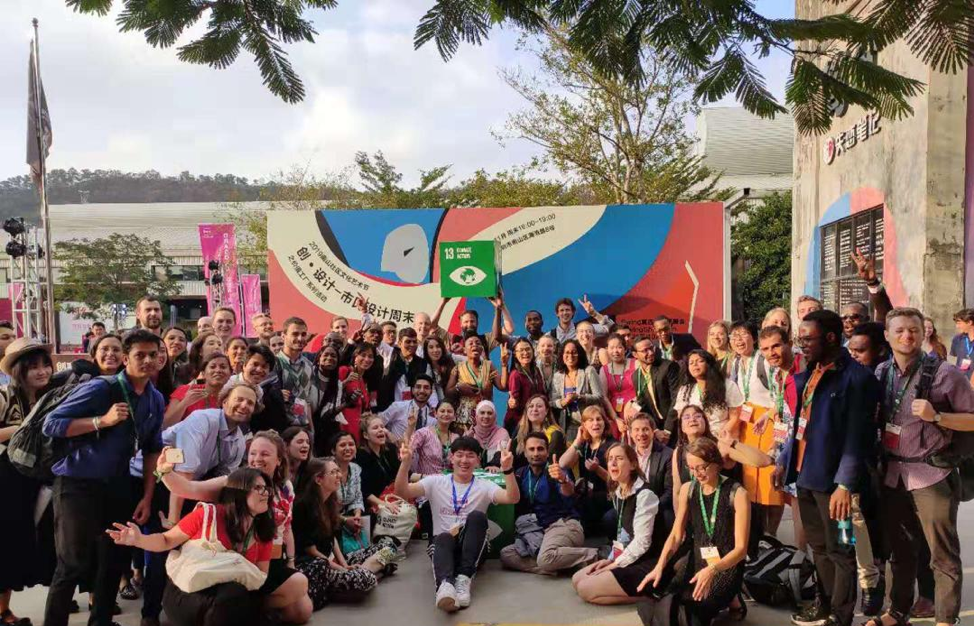
The talents tackling Sustainable Development Goal 13: Climate Action
Submitted by Andrea Byfuglien, graduate student at the Institute for Resources, Environment and Sustainability (IRES) at UBC
